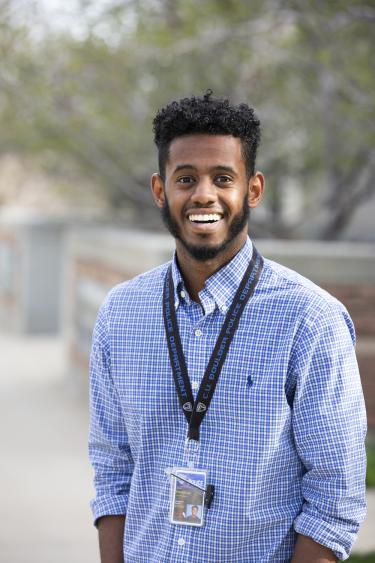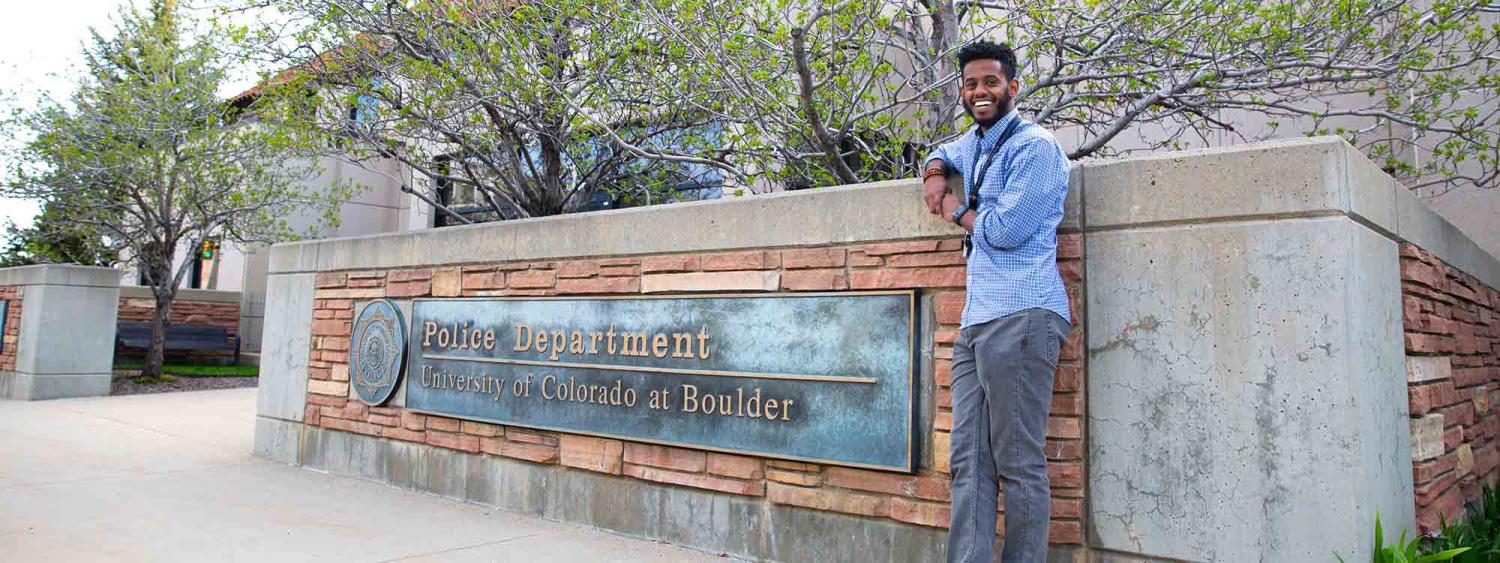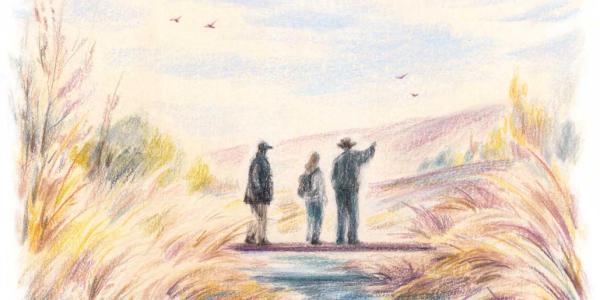Growing up in Aurora, Colorado, CU Boulder law school student Jemil Kassahun (IntlAf, PolSci, Soc’21; Law’24) was proud to be part of a diverse community with many cultural influences.
“Aurora is the most diverse city in the state of Colorado,” said Kassahun, 24. “I was involved in the African Student Association and Muslim Student Association [in high school], where I would work to help express our cultures and values to the rest of the community.”
Despite having a deep pride for his community — especially after witnessing city residents unite after the 2012 Aurora movie theater shooting — Kassahun also saw disparities in the treatment of his friends of color versus white friends at the hands of police officers and within the justice system.
The death of Elijah McClain, an unarmed Black man who died days after Aurora police put him in a now-banned carotid hold and injected him with ketamine in 2019, helped ignite Kassahun’s decision to pursue an education that would allow him to provide support for historically marginalized communities.
“It was shocking for all of us in Aurora when it happened, because this is the same police force that took in James Holmes unharmed,” said Kassahun, referencing the white man convicted of murdering 12 people in the Aurora theater.
Kassahun, who earned an international baccalaureate diploma in high school and arrived at CU Boulder flush with academic credit, recognized that higher education could be used as a vehicle to help his community.
“I remember reflecting on why I hope to do what I hope to do,” he said. “The stories of Elijah and so many others drive me.”
He joined the CU Police Department (CUPD) in 2019 as an administrative assistant, and quickly began organizing community outreach events. By 2020, Kassahun was serving on CUPD hiring committees and supporting the department’s de-escalation training.
In the summer of 2020, after the killing of George Floyd in Minneapolis, Kassahun helped galvanize campus conversations focused on police reform. He assisted in organizing a Boulder Black Lives Matter march and invited CU Boulder police chief Doreen Jokerst and Boulder police chief Maris Herold, who attended along with Boulder County district attorney Michael Dougherty.
“I think a lot of people were uplifted that members of law enforcement chose to come in solidarity and attend the march with us,” Kassahun said.
 A monthslong collaboration among CUPD, student and campus leaders, and representatives of the campus’s shared governance groups — along with a hefty dose of reassurance to students of color that university police leaders would listen to their concerns and be open to change — led to more open dialogue. As a result, the CU Boulder Community Safety Task Force began, which evaluated campus policing policies, practices and training and recommended ways to ensure public safety on campus. One of the group’s key recommendations was to establish the Community Oversight Review Board, on which Kassahun was asked to serve.
A monthslong collaboration among CUPD, student and campus leaders, and representatives of the campus’s shared governance groups — along with a hefty dose of reassurance to students of color that university police leaders would listen to their concerns and be open to change — led to more open dialogue. As a result, the CU Boulder Community Safety Task Force began, which evaluated campus policing policies, practices and training and recommended ways to ensure public safety on campus. One of the group’s key recommendations was to establish the Community Oversight Review Board, on which Kassahun was asked to serve.
“Working at CUPD has put me in a position to drive change in our campus community and the broader Boulder community,” he said.
Kassahun also has worked for state and regional offices, including serving as a law clerk in the U.S. Attorney’s Office for the District of Colorado, interning with the Denver District Attorney’s Restorative Justice and Diversion Unit and taking part in Colorado Law’s immigration defense clinic. He also works with Colorado Law’s Korey Wise Innocence Project to serve incarcerated people with claims of innocence.
When the grind of law school leaves Kassahun in need of motivation to reach his goal of working within the U.S. Department of Justice, he reflects on the origins of his passion for public service.
“I always acknowledge the barriers that people in my community face,” he said. “I feel an obligation to find a way to give back. That empowers me.”







